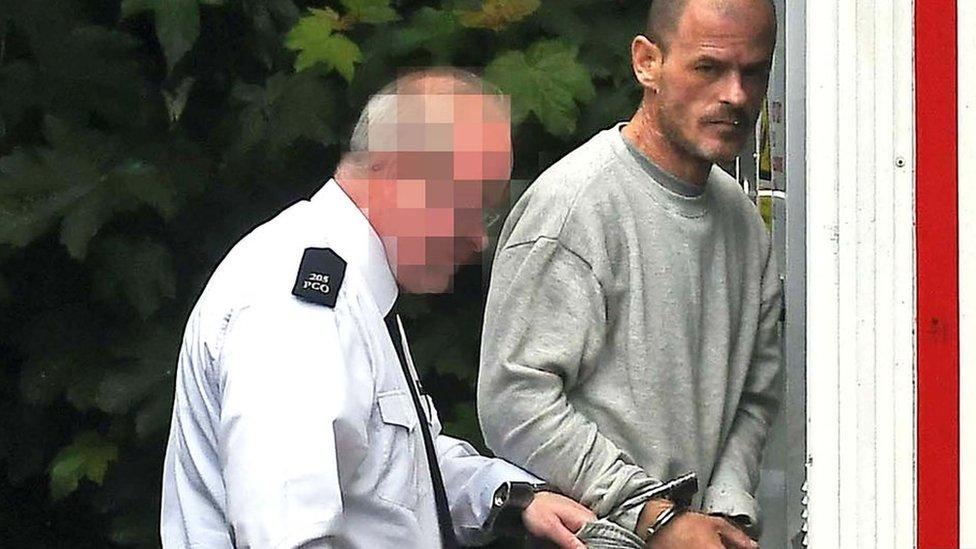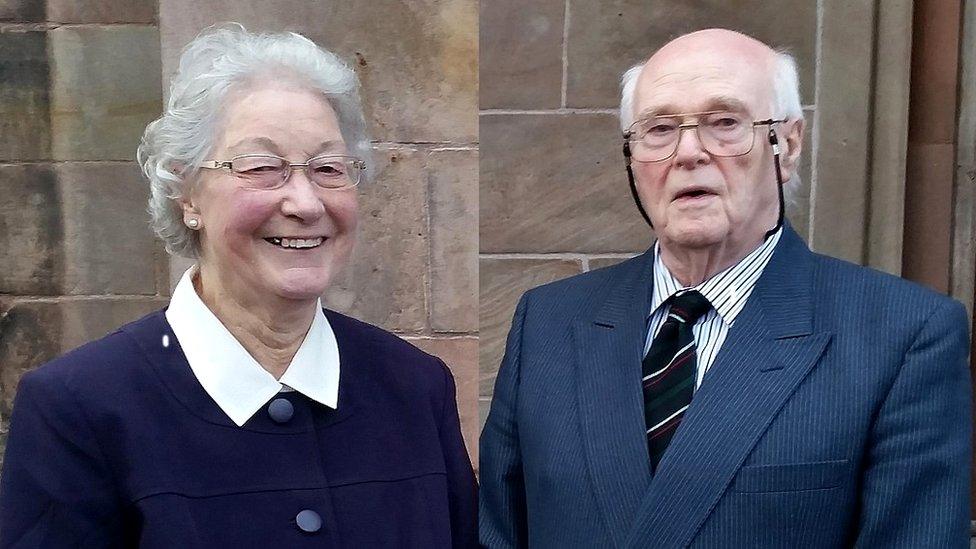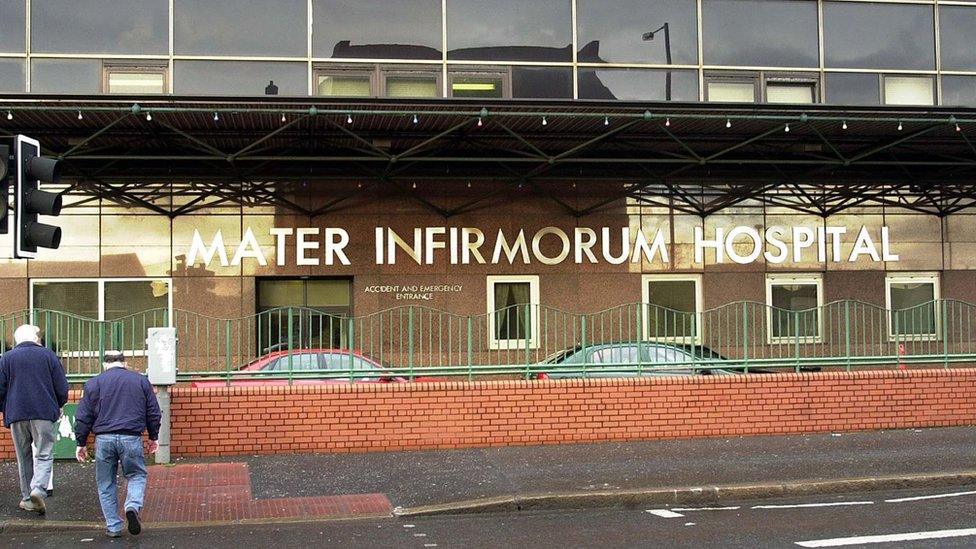Cawdery killings: Killer spoke of demonic delusions
- Published

Thomas Scott McEntee was jailed in 2019 for the manslaughter of Michael and Marjorie Cawdery
A double killer spoke to police about demonic delusions four days before he stabbed an elderly couple to death in County Armagh, an inquest has heard.
Thomas Scott McEntee, who had a history of mental health issues, killed Michael and Marjorie Cawdery in May 2017.
Four days before the killing, police brought McEntee to a Belfast hospital for a mental health assessment.
One officer told the inquest he had warned hospital staff that he believed McEntee posed a danger to other people.
He testified that he had strongly expressed his opinion to health workers that the patient should be detained - sectioned - under mental health legislation.
The officer said he was "shocked" that despite his attempt to voice concerns about McEntee's "disturbing" conversations in the waiting area and his violent criminal background, medics released him from Belfast's Mater Hospital within a few hours.
As McEntee came out of the mental health assessment and was told he was free to go, he then allegedly told the police officer: "I told you I wasn't crazy."
The patient displayed more concerning behaviour in the days that followed, and on 26 May 2017, he broke into the Cawderys' home in Portadown and killed them.
McEntee pleaded guilty to their manslaughter in 2018 and is currently serving a life sentence with a minimum of 10 years in prison.
The inquest into Mr and Mrs Cawdery's deaths is examining McEntee's interactions with police and healthcare workers in the lead up to the fatal stabbings.

Marjorie and Michael Cawdery were retired grandparents who were attacked during a break-in at their Portadown home
A constable from the Police Service of Northern Ireland (PSNI) was among witnesses called to give evidence on the second day of hearings.
He told the court he had been serving with the PSNI for about 18 months when he was deployed to accompany McEntee at the Mater Hospital on 22 May 2017.
The patient had voluntarily agreed to undergo a mental health assessment, having earlier that day reported to PSNI officers he was being chased by a cult.
The constable told the inquest that he was deployed to the Mater at about 15:00 BST, to relieve PSNI colleagues who were coming off duty at the hospital.
The witness said McEntee was "calm and quiet and compliant" when he first saw him in a public waiting area of the building.
However, as the time passed, McEntee began to talk and open up.
'Very concerned'
Their conversation turned to angels, demons and spiritual matters, the court was told.
The constable also remembered that the patient recited a "rap-style poem" to officers, which had dark, demonic themes.
The officer told the court he found McEntee's words "disturbing" and he was "very concerned" about his mental health.
"My concern was that he would harm others," he explained.

The constable told the inquest that Mater Hospital hospital staff seemed "dismissive" of his concerns
The officer said he spoke to staff at the hospital to share his concerns about the patient.
He also recalled that he made healthcare staff aware of McEntee's criminal background, which he said included the use of weapons during burglaries and robberies.
However, he said health staff appeared "dismissive of my opinion".
Following a mental health assessment that lasted less than an hour, McEntee was released from the hospital, with the aim of getting follow-up care from his GP.
Questions over 'late' document
On the morning of the stabbings, McEntee was brought to Craigavon Area Hospital under police escort for another mental health assessment, but he walked out of the facility and broke into the Cawderys' home which was a short distance away.
During the first two days of the inquest, much of the focus has been on when police can and should invoke their powers under mental health legislation to detain individuals and take them to a "place of safety".
Officers who encountered McEntee in Belfast on 22 May have explained that he was not displaying violent behaviour at the time and that he co-operated when asked to attend hospital voluntarily.
They said they did not invoke their powers to detain him because they felt it was not required at that stage.
Tuesday's hearing finished earlier than planned due to questions over a document that was supplied late to the inquest.
The "joint protocol" document was described as form usually completed by police and health care staff which helps them share information about a patient when there are concerns about who will be responsible for their future care.
A form filled in by police who attended the Mater Hospital with McEntee on 22 May 2017, but which was not signed by hospital staff, was submitted to the inquest on Wednesday morning.
Following concerns from some legal representatives about the timing of the disclosure, the coroner rose early and gave the police and health trust a deadline to answer her queries about the document.
- Published12 June 2023
